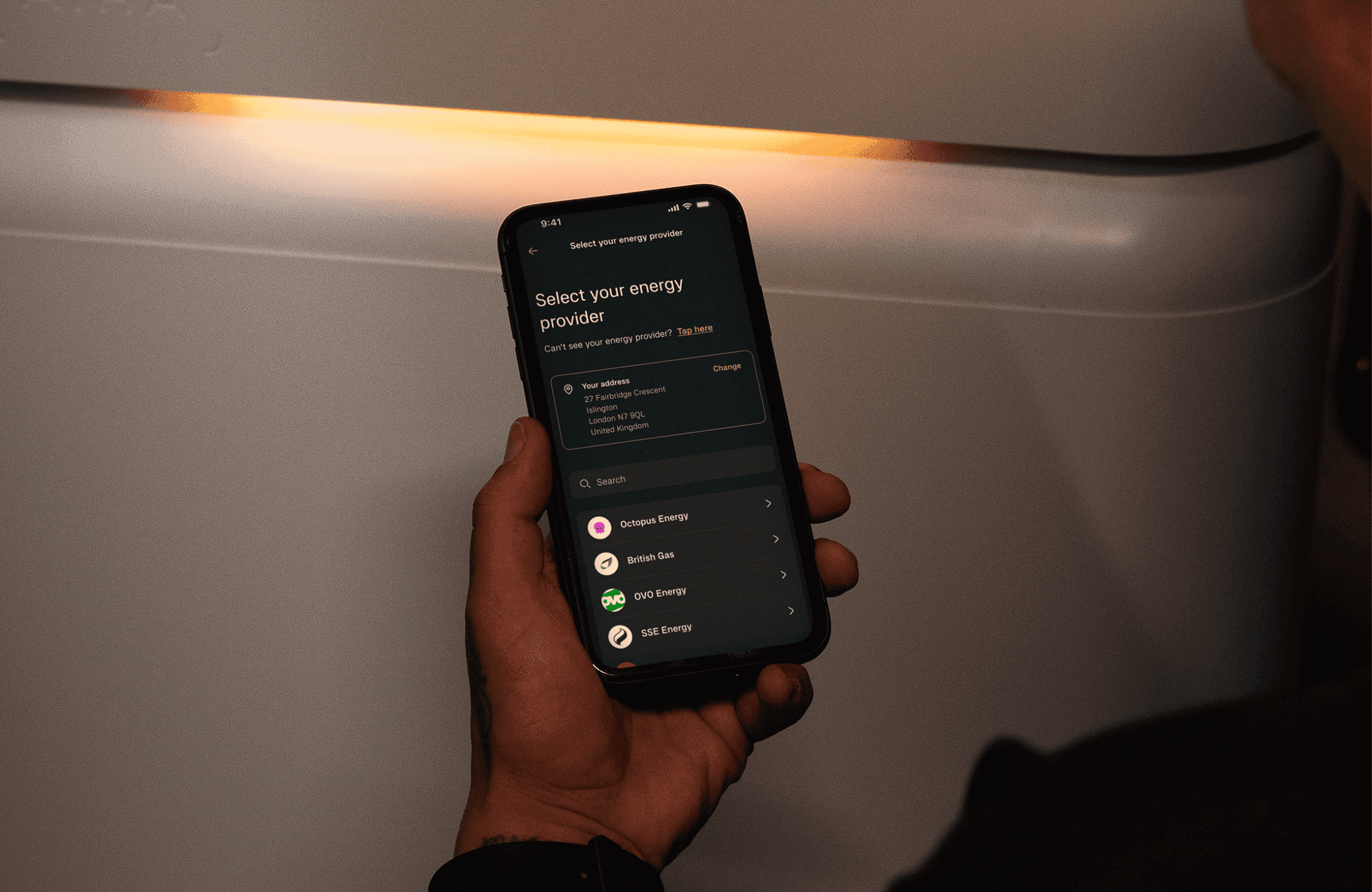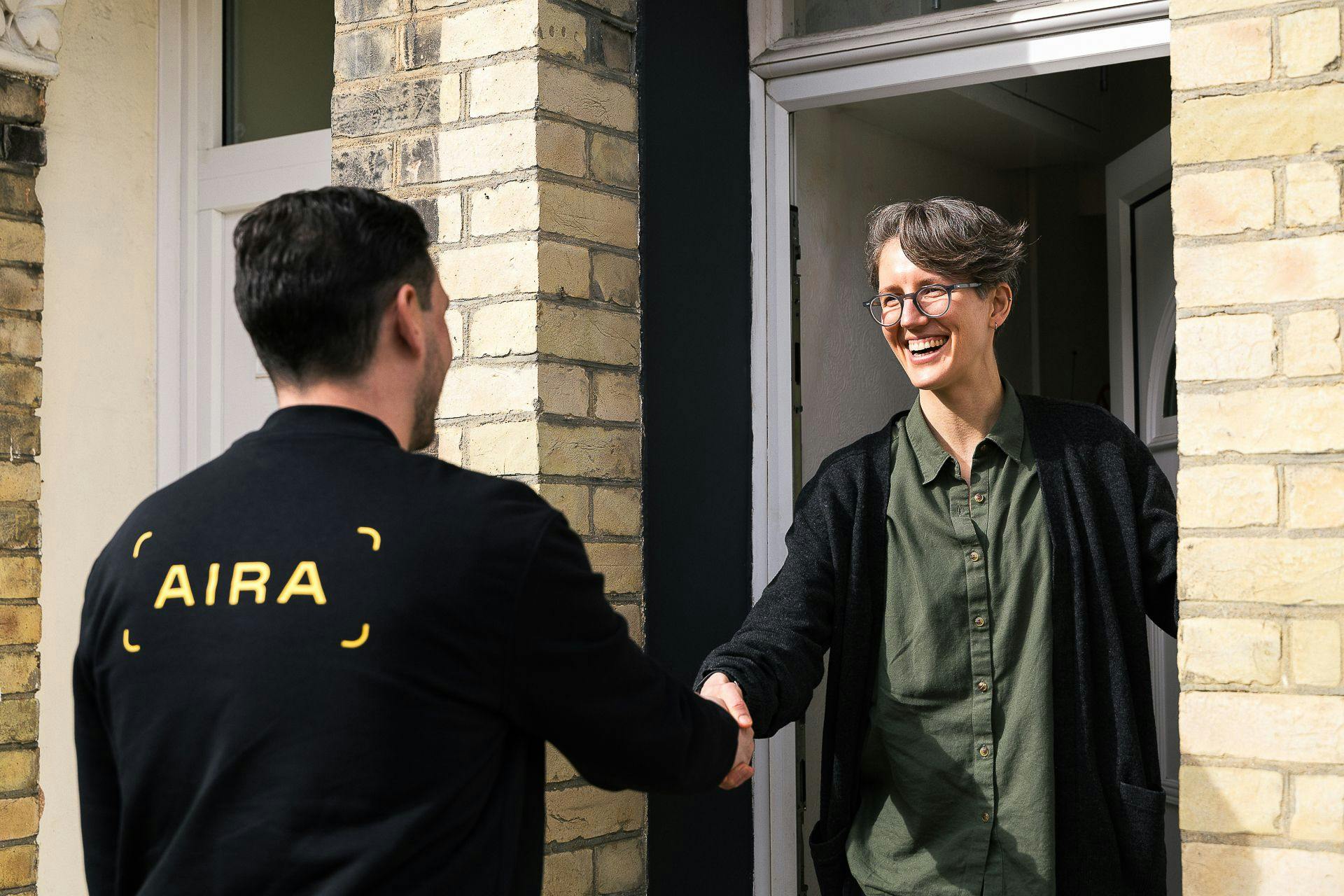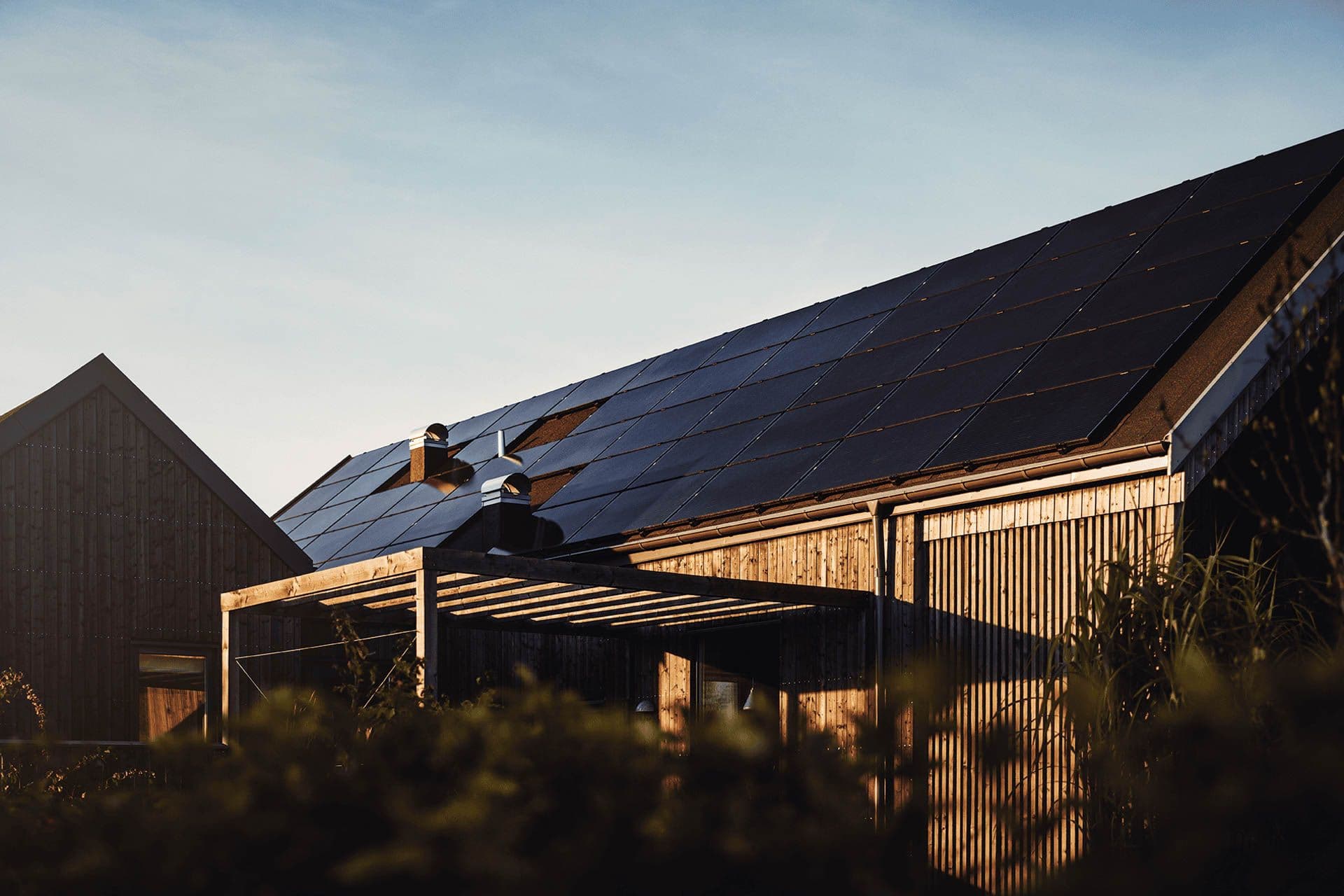5 May 2025
5 minute read
Written by:

Regina Onorato
Content Designer
Heat pumps vs. gas boilers: Which is the right choice for you?

Gas boilers have been the go-to for home heating since the 1950s. But heating technology has moved on. With rising energy costs and the push for cleaner, more affordable heating, more homeowners are switching to heat pumps.
So, how do heat pumps and boilers compare? Let's break it down – upfront costs, efficiency, performance, and long-term savings – so you can make the best choice for your home.
What’s the difference between boilers and heat pumps?
Boilers burn gas to heat water. That water flows through your radiators to warm your home. It’s what most UK homes still use, but it’s powered by fossil fuels and wastes a lot of energy.
Heat pumps work differently. They pull warmth from a renewable source, like air, ground or water, to heat your home instead.
The most common kind, the air to water heat pump, transfers energy from the air outside to heat your water. No burning. Just clean, efficient heating powered by the air and a little bit of electricity. And when that electricity comes from renewables, your heating can be 100% carbon-emission-free. Read more about how heat pumps work.
What are the pros and cons of heat pumps vs. boilers?
Not all heating systems are created equal. Here's how heat pumps and gas boilers compare on things that really matter, like cost, carbon emissions and long-term savings. These are the reasons more people are making the switch.
| Factor | Boilers | The Aira Heat Pump |
|---|---|---|
| Efficiency | 80-90% | 300-500% |
| Carbon emissions | High | Low to zero (if powered by clean energy tariff) |
| Costs | Lower upfront, but higher operational costs | Higher upfront, but lower operational costs |
| Installation | 1-2 days | 2-4 days |
| Lifespan | 10-15 years | 20-25 years |
| Maintenance | Annual servicing required | Minimal maintenance |
Cost & running cost comparison
Gas boilers are cheaper to install. But that’s where the savings stop. Their running costs are tied to gas prices, which are always rising.
Heat pumps cost more upfront, but they’re far more efficient, so you spend less over time. Want to see how it could add up for your home? Try our heat pump cost calculator.
- The average gas boiler user spends about £1068 per year (excluding maintenance costs)
- With a heat pump, it’s more like £840 per year, depending on insulation and electricity costs
- And with the £7,500 government grant (eligibility applies), the switch is more affordable than you might think
Cost & efficiency comparison between heat pumps and boilers
When it comes to heating your home, every detail matters. Here's how gas boilers and heat pumps compare across the board: install time, running costs, and impact on the planet.
And when you look at the full picture, the smart choice becomes clear.
| Feature | Boilers | The Aira Heat Pump |
|---|---|---|
| Upfront cost | £2,000 - £6,000 | £6,800 - £11,000 (after government grant) |
| Installation time | 1-2 days | 2-5 days |
| Running cost | About £1,500/year (including maintenance, insurance and servicing) | About £920/year (including maintenance & combined with clean energy tariff) |
| Efficiency (COP) | 85-90% | 300-500% |
| Environmental impact | High CO₂ emissions | Low carbon footprint |
| Energy source | Gas, oil | Electricity and renewables |
UK grants and heating regulations – What you need to know
The UK is moving away from fossil fuel heating. And helping homeowners move with it.
- Boiler Upgrade Scheme (BUS): £7,500 off an air-to-water heat pump for eligible homes in England or Wales
- Home Energy Scotland Grant and Loan: £7,500 grant and £7,500 interest free loan for elgibile homes in Scotland
- Gas boiler phase-out: While there was an initial plan to ban gas boilers in new builds from 2025 under the Future Homes Standard, the government has shifted to implementing stringent energy efficiency standards for new constructions.
- ECO4 support: Help for low-income households to upgrade insulation and heating
Learn more about the boiler upgrade scheme or how Aira can help you with your heat pump grant.
Which system is best for different types of homes?
Every home is different. What works in one might not be ideal in another. So, here’s a quick overview to help you figure out if a heat pump could work for yours:
| Home scenario | Recommended system | Why? |
|---|---|---|
| Older, poorly insulated home | Gas boiler (or insulate first) | Heat pumps are less effective in draughty homes unless insulation is upgraded |
| Well-insulated modern home | Heat pump | Efficient performance at low temperatures and long-term savings |
| Home with solar panels | Heat pump | Can use your own renewable electricity for maximum savings |
| Planning to sell or move soon | Heat pump | Heat pumps can increase the value of your home |
| Long-term homeowner prioritising sustainability | Heat pump | Lower running costs and reduced carbon emissions over time |
How does a heat pump replace a boiler?
A heat pump can take the place of your boiler, but a few smart adjustments may be needed.
Because heat pumps run at lower flow temperatures, homes with good insulation, underfloor heating or larger radiators tend to get the best results. That’s why we carry out a free home energy assessment and technical survey, checking everything from insulation to heat loss. It means your system works exactly as it should, from day one.
Which system is more environmentally friendly?
Heat pumps are simply better for the planet. Boilers burn gas. That means emissions.
Heat pumps don’t. And when powered by a clean energy tariff, they can cut your home heating carbon emissions by up to 100%.
Additionally, heat pumps integrate seamlessly with solar panels, further reducing your impact on the planet and your energy costs.
Reliability & dependence
Performance in cold weather
Think heat pumps can’t handle the cold? Think again. Modern heat pumps perform efficiently even in colder climates with sub-zero temperatures. The Aira Heat Pump, for example, runs efficiently down to -25°C. That’s colder than any UK winter.
Gas boilers keep up too, but they rely on burning fossil fuels. With a heat pump, you stay warm without the carbon cost.
Servicing & parts availability
- Boilers need regular servicing and repair. Especially over time.
- Heat pumps? Just the occassional filter checks and quick system lookover. For the Aira Heat Pump, we recommend a maintenance visit every two years.
Energy security
- Boilers are dependent on gas availability and market fluctuations.
- Heat pumps run on electricity, which can be sourced from the grid or renewable energy systems.
The bottom line
A heat pump is a cleaner, smarter way to heat your home. Yes, it usually costs more upfront, but it saves you more in the long run, all while shrinking your carbon footprint.
Thinking of switching? Or just want to see if it’s right for you? Request a quote and book your free home energy assessment with Aira.
What type of house do you live in?
Keep learning
Similar articles to expand your knowledge

Published 2 days ago
Carl RobinsonWhy tariff flexibility matters for heat pump savings
Heat pump savings don’t just depend on the technology or your heating needs. They also depend on your tariff. As energy prices shift and new products enter the market, flexibility becomes essential. Discover why choosing a system that can optimise against any tariff protects your savings long term.

Published at 27 Jan 2026
Carl RobinsonThe Warm Homes Plan: what it really means for your energy bills
The UK’s new Warm Homes Plan confirms one thing: the future of cheaper energy is clean, electric homes. Here’s what the plan really means for homeowners. And how heat pumps, solar and home batteries can cut your bills long before 2030.

Published at 15 Jan 2026
Carl RobinsonIs a heat pump ideal for your semi-detached home?
Think heat pumps are only for large detached homes? In reality, semi-detached houses are perfectly suited to them. We delve into why heat pumps work so well in these homes and whether yours is ready for the swtich.

Published at 6 Jan 2026
Carl RobinsonSolar panels with home battery storage: is it worth it?
Solar panels generate free, 100% clean energy, but a home battery is what helps you use more of it. By storing excess solar power for later, battery storage can make solar far more effective. Here’s why solar and batteries belong together. And where Aira fits in.

Published at 19 Dec 2025
Carl RobinsonIs a heat pump ideal for your single-family detached home?
If you own a single-family detached home, you’re already in a strong position to switch to a heat pump. With full control over your space, insulation and energy use, heat pumps can deliver lower bills, steadier comfort and lower emissions all year round. Here’s what to know about performance, costs and everyday life with a heat pump in a single-family detached home.

Published at 17 Dec 2024
Carl RobinsonHeat pump efficiency explained: When is a heat pump most efficient and why
Heat pumps are the most efficient way to heat a UK home and are typically 4 times more efficient than a gas boiler. But what actually drives that efficiency? And when do heat pumps perform at their best? This guide breaks it down simply, from COP and SCOP to the real factors that shape performance.